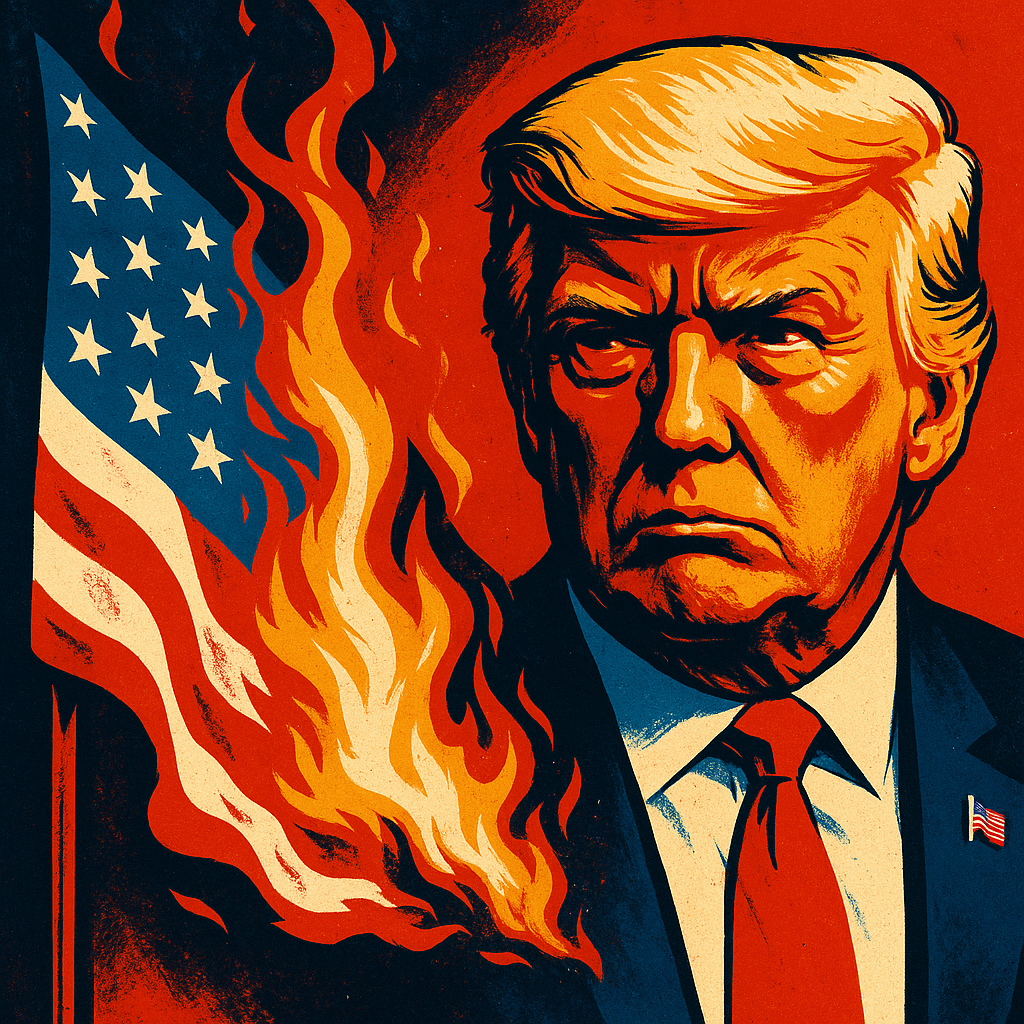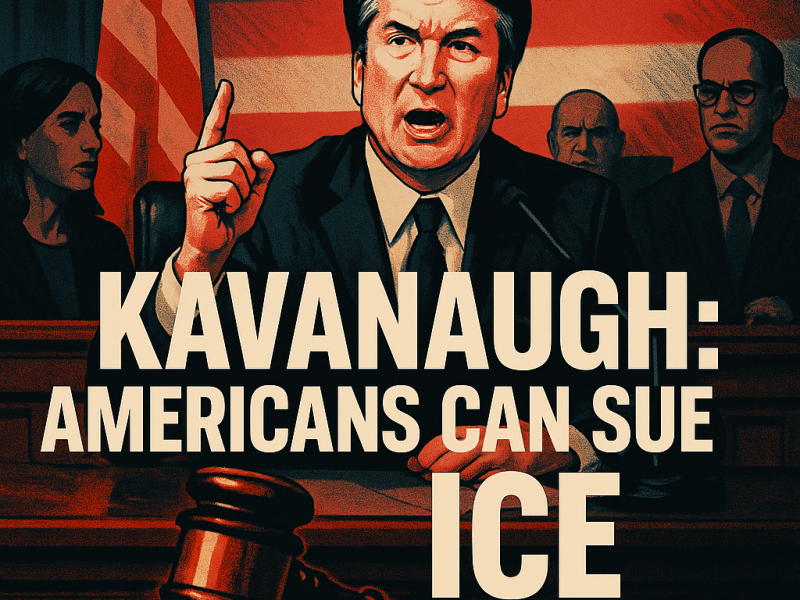In recent remarks that quickly drew national attention, President Trump called on the DOJ to investigate flag burnings, reigniting a long-standing debate in American politics. The U.S. flag has always carried enormous symbolic weight, representing ideals of freedom, unity, and sacrifice. Yet, it has also been at the centre of protests for decades, serving as a canvas for those who wish to highlight social injustices or voice political dissent. Now, with the president’s renewed focus on the issue, many are asking: what does this mean for the right to protest, and how might it reshape the legal landscape?
Flag Burning and the First Amendment
To understand the significance of President Trump’s request that the DOJ investigate flag burnings, it’s important to revisit the Supreme Court’s stance on this issue. In the landmark 1989 case Texas v. Johnson, the Court ruled that flag burning is a form of symbolic speech protected under the First Amendment. The majority opinion emphasized that the government cannot prohibit expression simply because it is offensive or unpopular.
This decision has guided U.S. law for more than three decades, making it difficult for any administration to legally ban or punish flag desecration. Nevertheless, the debate resurfaces periodically, often during times of political polarization. For some, burning the American flag is seen as a deeply disrespectful act. For others, it remains a legitimate expression of frustration or dissent against the government.
Why the Call to Investigate Flag Burnings Now?
So why has President Trump pressed the DOJ to investigate flag burnings? The call came amid broader national conversations about protests, political identity, and patriotism. In recent years, high-profile demonstrations have included flag burnings as a form of protest against systemic racism, police brutality, and government policies.
For the president and many of his supporters, the American flag symbolizes unity, honor, and respect for those who have sacrificed for the country. To see it burned, even as an act of protest, is often interpreted as an attack on the nation itself. By directing the DOJ to pursue investigations, the administration signaled a desire to protect the symbolic integrity of the flag, even if it means challenging long-established legal precedent.
Critics, however, see the move differently. Civil liberties advocates argue that asking the DOJ to investigate flag burnings is a direct threat to free speech. They point to the Supreme Court’s decisions in Texas v. Johnson (1989) and United States v. Eichman (1990), both of which struck down laws criminalizing flag desecration. From this perspective, any federal investigation into flag burning would be unconstitutional and could chill legitimate political expression.
The Legal Hurdles Ahead
While President Trump’s directive to the DOJ has symbolic power, the legal obstacles are considerable. The Supreme Court has twice affirmed that burning the American flag qualifies as symbolic speech protected under the First Amendment. Unless the Court were to overturn its own precedents—a rare occurrence—the DOJ faces serious challenges in pursuing charges against individuals engaged in flag burnings.
That said, legal experts note that law enforcement could still act in cases where public safety is threatened. For example, if burning a flag risks starting a fire in a crowded area or is used to incite violence, authorities may intervene. However, prosecuting someone solely for the act of flag desecration would likely face significant constitutional challenges in court.
Public Opinion on Flag Burning
Public opinion on flag burning is deeply divided. Polls show that a majority of Americans disapprove of burning the flag, viewing it as offensive or unpatriotic. However, a significant portion of the public also recognizes it as a form of free expression that should remain protected, even if they find it distasteful.
This division reflects the broader tension between protecting symbols of national pride and safeguarding the fundamental right to dissent. President Trump’s push to have the DOJ investigate flag burnings taps into this cultural fault line, appealing to patriotic sentiment while raising constitutional questions.
The Bigger Picture: Patriotism, Protest, and Policy
This debate is about more than just flags. It raises fundamental questions: How do we balance respect for national symbols with the right to protest? Can—or should—the government police symbolic acts of dissent? For those who view flag burning as a vital form of free expression, the answer is clear: any move to restrict it could erode core democratic values.
For others, especially those with personal ties to military service or strong patriotic convictions, the image of a burning flag feels like a direct insult to the sacrifices made by countless Americans. From this perspective, President Trump’s call for the DOJ to investigate flag burnings aligns with his broader theme of defending national pride.


